Family scapegoaters are insecure people driven to try and raise their own status by attempting to lower the status of their target, who then becomes the family scapegoat.
Did you grow up having doubts about your self-esteem or personal worth? When things went wrong in your family, did you tend to be the fall guy? Did one or more members of your family, especially a parent, routinely criticize, blame or shame you, like you could do nothing right?
Did other family members go along with this treatment or join the blame game? Do you find yourself encountering recurring disrespect from friends or colleagues? Do you feel unsure of yourself and/or have difficulty experiencing trust in relationships? Are you drawn to people who repeatedly hurt you, act irresponsibly or let you down?
If you answered ‘Yes’ to any of these statements, then you may be the family scapegoat. The term ‘scapegoat’ refers to a family member who takes the blame for difficulties in the family.
Related: Why Family Scapegoats Become Lifelong Victims
Scapegoating is a form of bullying. Scapegoats are repeatedly subjected to belittling, humiliation, abandonment, betrayal, and outright hatred by family members, who make them the ‘bad guy’.
Family relationships profoundly impact our identity and how we view ourselves. People who have been subjected to scapegoat syndrome since childhood may absorb and believe these disparaging messages from family, causing them to question their worth and loveability.
Scapegoats tend to feel a lot of anger, either towards themselves and/or the people who have abused them, causing chronic emotional distress
Read on to discover how to break free from family bullying, stand up to the inner critic – aka the Troll, recover your true identity and heal from family scapegoating.
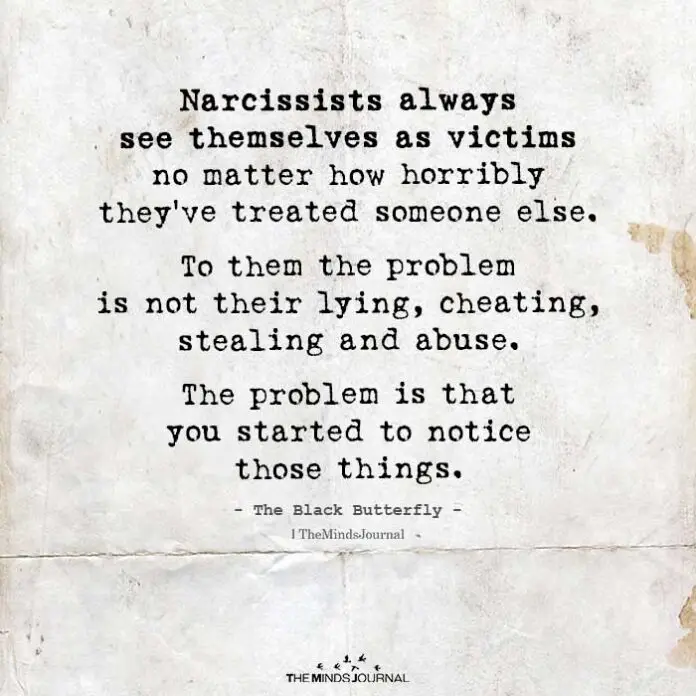
What Are The Signs You Are The Family Scapegoat?
- You are held responsible for family problems, conflicts, or challenges, even if they have nothing to do with you. Other people blame you for their actions. You may end up feeling a lot of shame for being ‘the bad guy’, and/or anger for being blamed for negative family dynamics.
- You are attacked and disbelieved if you tell the truth and ‘blow the whistle’ on negative and/or inappropriate family dynamics. You are accused of being a troublemaker by pointing out reality.
- There has been a history of one or more family members being verbally, emotionally, or physically abusive towards you. Other family members seem to accept this, look the other way or join in when you are bullied or aggressed like this. You may feel like the ‘black sheep’ of the family.
- You find yourself repeatedly being accused of behavior the scapegoater is engaged in. For example, a family member repeatedly yells at you and then accuses you of being abusive. Or you behave thoughtfully and are then told “all you care about is yourself”.
- You act out the negative ‘expectations’ of scapegoating such as not living up to your potential, or getting into relationships with abusive people because it ‘feels’ familiar and your self-esteem has been damaged.
- You are the mentally healthiest family member but are repeatedly accused of being sick, bad, difficult, etc.
- You have been slotted into the role of family outcast, and are treated with disdain or disgust by family or yourself.
- You may be successful and accomplished career-wise and/or academically, especially in comparison to the rest of your family. However, your achievements are dismissed, belittled, minimized, criticized, and rejected by family members.
Related: The Masters Of Blame Shifting: Why Narcissists Never Become The Scapegoat
What Are Some Common Family Scapegoating Patterns?
Families that are shame or fear based are not healthy. Often in these families, you will find evidence of abuse, neglect, addiction, betrayal, mental illness – specifically Narcissistic Personality Disorder, and insecurity.
Dysfunctional families either lack insight or find it threatening, and actively repress it through scapegoating those who wish to understand and change negative dynamics. Scapegoating is a “projection defense” that allows scapegoaters to keep up appearances. In other words, making the scapegoat look bad takes attention off the real problems and accountability in the family.
Many families who resort to scapegoating are headed by narcissistic parents who lack personal awareness, and empathy for their target, as in their eyes, the target is there to serve their false image and make them look good.
So the purpose of scapegoating syndrome is to allow families to carry on unhealthy behavior patterns, and maintain the myth of normalcy, without having to look inward or take responsibility for a toxic environment.
To the outside observer – and possibly the Scapegoat – these families seem crazy-making and delusional. Or they may put on a good front, hiding the dysfunction, and rendering the target even more alone and isolated when no one else can see the problem.
Who Gets Picked To Be The Family Scapegoat?
The Scapegoat doesn’t get picked randomly or by accident. Usually, they are either sensitive, unhappy, gifted, vulnerable, ill and/or the outspoken child or whistleblower. Whatever the circumstances, the scapegoat is almost always the child who refuses to look content or stay silent in the unbearable atmosphere created in the family home.
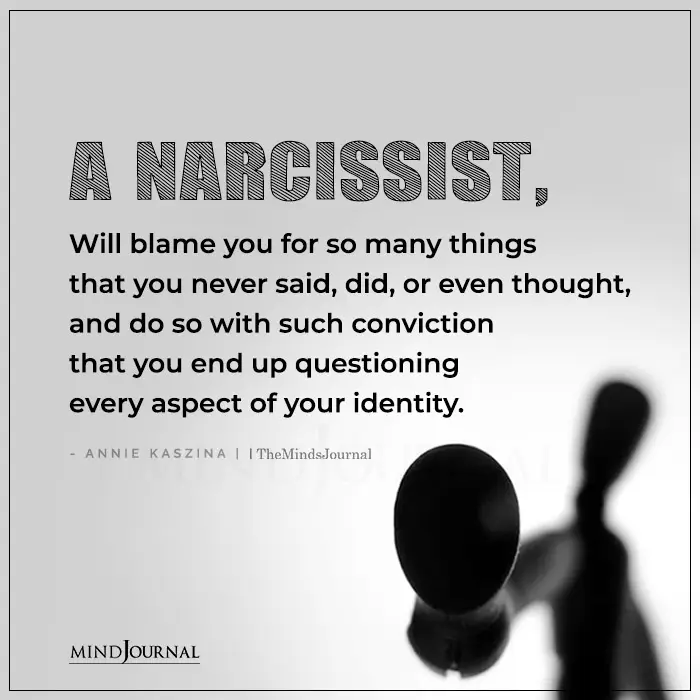
How Scapegoating Impacts The Target
Scapegoats almost universally experience low self-esteem or a lack of self-worth. The major problem is that they suffer from an Identity Disturbance, as the target confuses the myth that they are bad, with the truth.
This is usually a lie, with the more insidious truth being that Scapegoats are being abused and brainwashed through a repetitive process of being taught they are ‘bad’.
Scapegoats tend to struggle with chronic insecurity, as they never feel safe or believe they are good enough or loved. They can also fall into a ‘Victim’ role, and unconsciously repeat their scapegoating by gravitating toward unhealthy behavior or relationships at work, school, and in their private life.
Scapegoats often have trouble feeling safe in relationships – especially intimate relationships – due to the massive betrayal of trust in their family. They can also have challenges managing emotions, and find they either feel overwhelmed and anxious or shut down and do not know how they are feeling.
Related: The Blameless Burden: Scapegoating In Dysfunctional Families
How To Break Free, Heal And Recover From Scapegoating
1. Understand that what you have come to believe about yourself as a family Scapegoat – i.e. that you are bad, weird, inadequate, or defective – is not the truth. In fact, it’s likely a lie that was created to prevent family members from acknowledging their own troubles, thereby avoiding taking responsibility for both their behavior and the need to change.
2. Locate and trust your ‘Inner Owl’ – that wise part of you that knows you have been mistreated and will no longer willingly allow this abuse from others or yourself.
3. Recognize that feelings of shame, guilt and self-blame belong to the perpetrators, not you as the target. You are simply a dumping ground for their bad feelings. To change this, you need to start standing up to the notion that you are at fault. You will likely have to begin with yourself, learning to question and reject seeing yourself as ‘bad’.
4. Get to know your true self. Identify exceptions to the negative stereotype you have been saddled with. In other words, pinpoint what is good, likable, or at least adequate about you – your character, values, actions, etc.
Write down your good traits – you will need to be reminded of this alternate universe, which is the truth about you, especially if you start to fall back into the habit of feeling bad about yourself again. Understand that getting better – and feeling better – is a learning curve, and you may slip a few times before you gain a solid footing
5. Figure out what you might be doing – consciously or unconsciously – that gives scapegoaters the idea that it’s OK to abuse you. Determine how to change any behavior that draws you into the Victim role.
6. Stop trying to win the favor of abusive and uncaring family members, co-workers, or ‘friends’. Anyone who engages in this type of inappropriate behavior has personality problems, especially a parent who did not love their child.
7. Don’t expect abusive family members to apologize or make amends. They will likely blame you more if you attempt to hold them accountable.
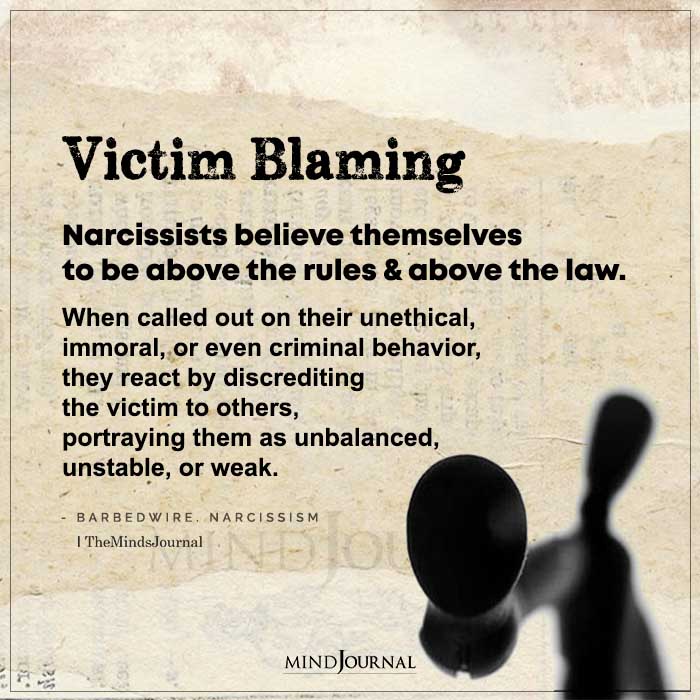
8. Start asserting your right to be treated respectfully with family and other people who try and abuse you. E.G., “The way you just spoke to me now is not acceptable, and I never want to be talked to like that again”, or “If you want to have a relationship with me, you will stop the angry outbursts, name-calling, accusations, etc.”
Know that you may not be heard or respected by aggressive or disturbed people. The point is that you hear and respect yourself! Don’t do this until you are ready to follow through with your commitment to yourself.
9. Accept that you may never have a healthy relationship with your scapegoater(s). This may involve limited or no contact with those who are determined to continue to abuse you. You may experience feelings of grief. Work through the painful feelings, and get support if needed. This pain is much less harmful than continuing to allow yourself to be abused by anyone.
10. Get in the habit of treating yourself with kindness, caring, compassion, appreciation, and acceptance. Practice viewing yourself as a person of worth and loveability. This will likely feel weird at first as it is unfamiliar. But even though it is unfamiliar, treating yourself in a loving manner is never wrong.
Related: The 5 Child Roles In Dysfunctional Families
11. Understand that it will take time to learn how to love and appreciate yourself. You have been trained to be overly self-critical and may believe you are defective. Be patient as this false image gradually crumbles. Get counseling to help you overcome this painful legacy, and find your true self – the strong, valuable person you are meant to be.
12. Practice what you preach with others… Break the cycle.
Want to know more about healing from scapegoating? Check this video out below!
To request an appointment, or join my email list to receive free resources as I create them, please visit https://GlynisSherwood.com
References:
Scapegoating in Families: Intergenerational patterns of physical and emotional abuse, Dr Vimala Pillari, Philadelphia, PA, US: Brunner/Mazel, 1991 Child Abuse: Pathological Syndrome of Family Interaction, Arthur Green, Richard Gaines and Alice Sandgrund, The American Journal of Psychiatry, 2015
Written By Glynis Sherwood Originally Appeared On Glynis Sherwood
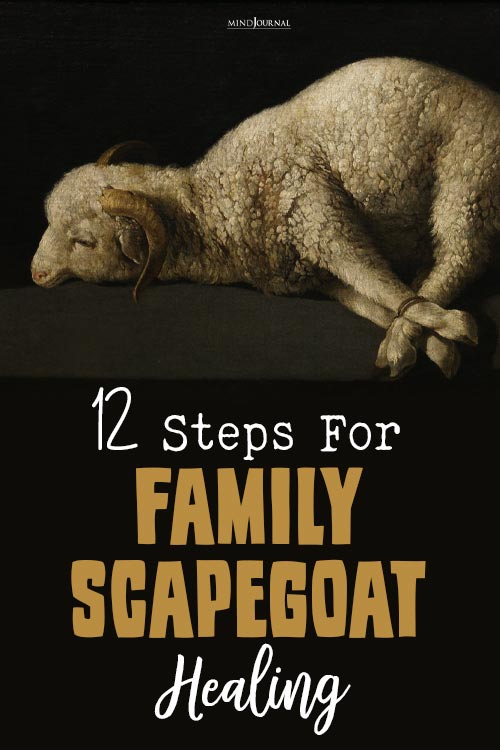
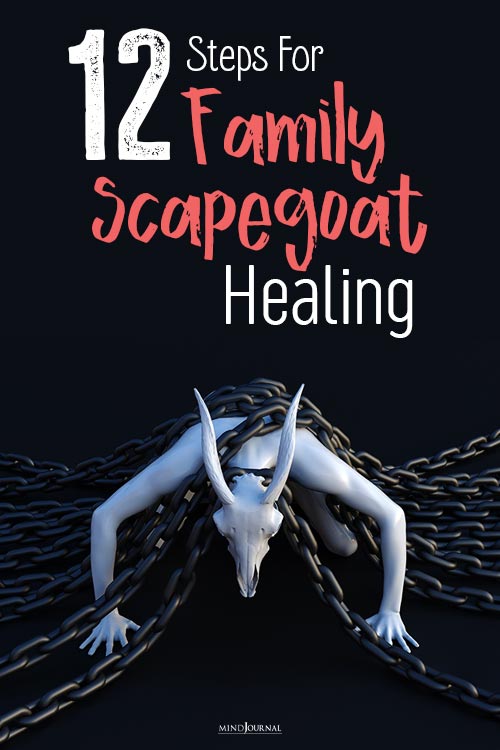
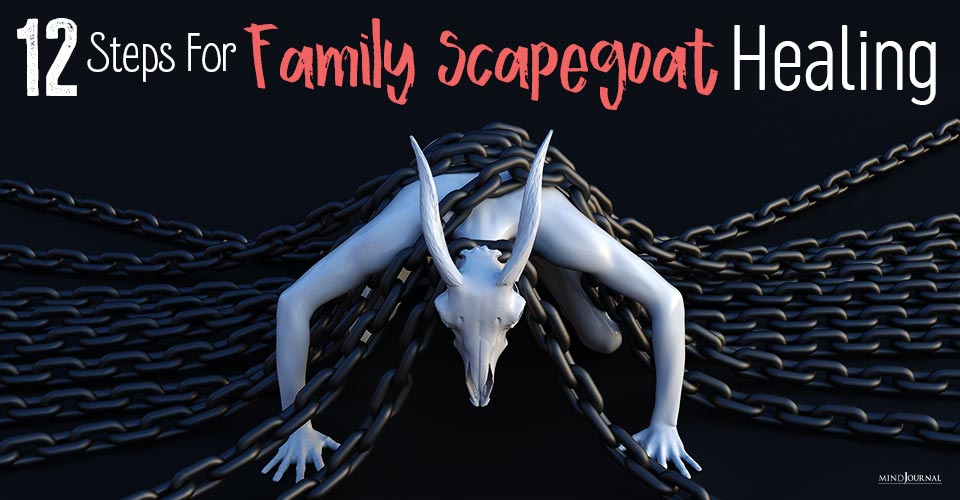







Leave a Reply
You must be logged in to post a comment.